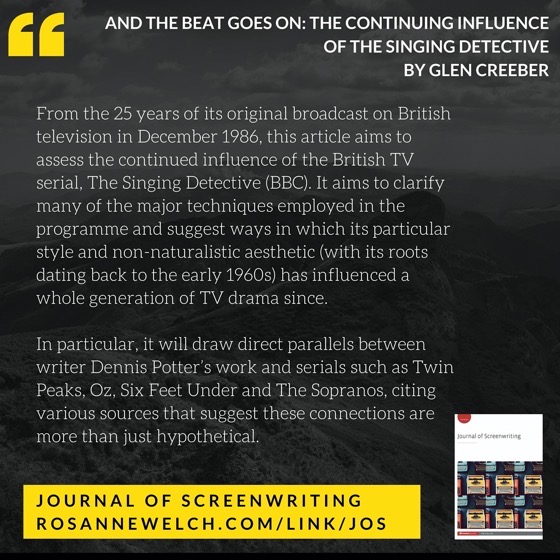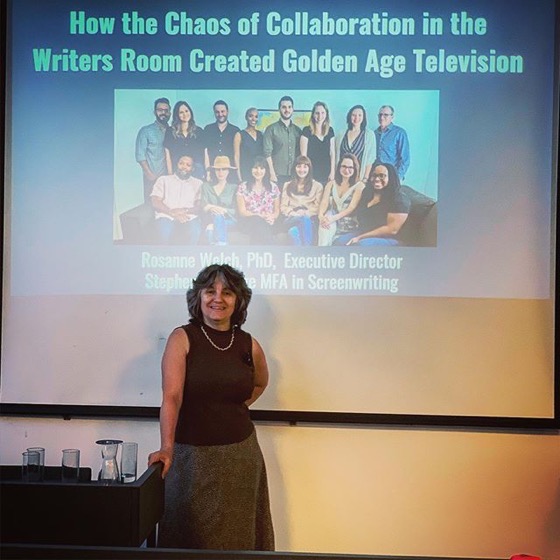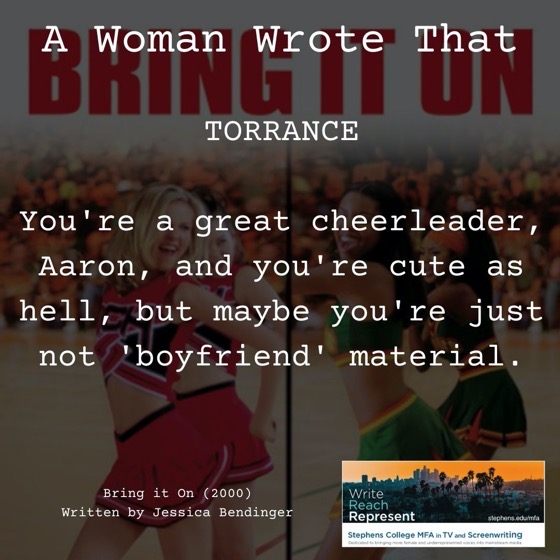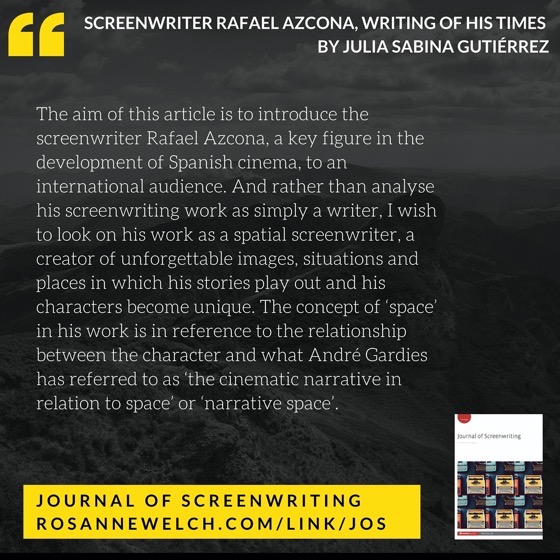Highlighting the articles in the past editions of the Journal of Screenwriting, of which I am the Book Reviews Editor. Hopefully these abstracts will entice you to did a little deeper into the history and future of screenwriting. — Rosanne
And the beat goes on: The continuing influence of The Singing Detective by Glen Creeber
From the 25 years of its original broadcast on British television in December 1986, this article aims to assess the continued influence of the British TV serial, The Singing Detective (BBC). It aims to clarify many of the major techniques employed in the programme and suggest ways in which its particular style and non-naturalistic aesthetic (with its roots dating back to the early 1960s) has influenced a whole generation of TV drama since. In particular, it will draw direct parallels between writer Dennis Potter’s work and serials such as Twin Peaks, Oz, Six Feet Under and The Sopranos, citing various sources that suggest these connections are more than just hypothetical. The American cable channel HBO (Home Box Office) will come under particular focus, with the author drawing links between its current remit to produce experimental and adult-themed drama and Potter’s own work. It will then investigate the state of contemporary British television drama and suggest why it arguably refuses to take as many risks as some of its American counterparts, citing various sources which suggest that contemporary British hard-hitting drama appears to have been forsaken for a plethora of heritage and period-based serials. In conclusion, it will argue that while the influence of The Singing Detective appears to have been profoundly significant elsewhere, its dramatic legacy is now surprisingly missing from British TV screens.


The Journal of Screenwriting is an international double-blind peer-reviewed journal that is published three times a year. The journal highlights current academic and professional thinking about the screenplay and intends to promote, stimulate and bring together current research and contemporary debates around the screenplay whilst encouraging groundbreaking research in an international arena. The journal is discursive, critical, rigorous and engages with issues in a dynamic and developing field, linking academic theory to screenwriting practice.
Get your copy and subscription to the Journal of Screenwriting Today!
* A portion of each sale from Amazon.com directly supports our blogs
** Many of these books may be available from your local library. Check it out!
![Have questions about the craft and/or business of screenwriting for film and TV? Drop them in the comments! via TikTok [Video]](https://rosannewelch.com/wp-content/uploads/2021/04/rmw-ask-me-questions-tt.gif)
![18 Where Are The Women? from There And Back Again: Writing and Developing for American TV [Video] (40 seconds)](https://rosannewelch.com/wp-content/uploads/2021/04/rmw-oxford-brookes-18.jpg)


![07 The Writer’s Voice from How The Chaos Of Collaboration in the Writers Room Created Golden Age Television [Video]](https://rosannewelch.com/wp-content/uploads/2021/04/srn-porto-07-1.jpg)



![17 The Bionic Woman from There And Back Again: Writing and Developing for American TV [Video] (56 seconds)](https://rosannewelch.com/wp-content/uploads/2021/03/rmw-oxford-brookes-17.png)

![06 The Universal Studios Writers Pool from How The Chaos Of Collaboration in the Writers Room Created Golden Age Television [Video]](https://rosannewelch.com/wp-content/uploads/2021/03/srn-porto-06.jpg)

![Dr. Rosanne Welch Presents “Female Creatives & A Star Is Born” [Video]](https://rosannewelch.com/wp-content/uploads/2021/03/rmw-women-creatives-star-is-born-usc.jpg)
